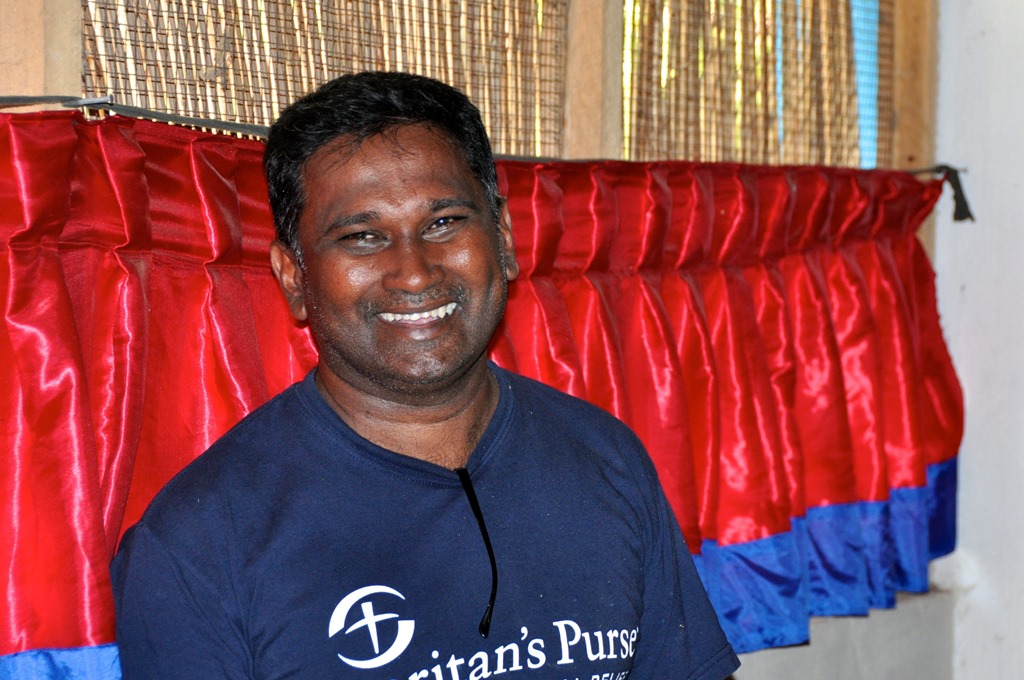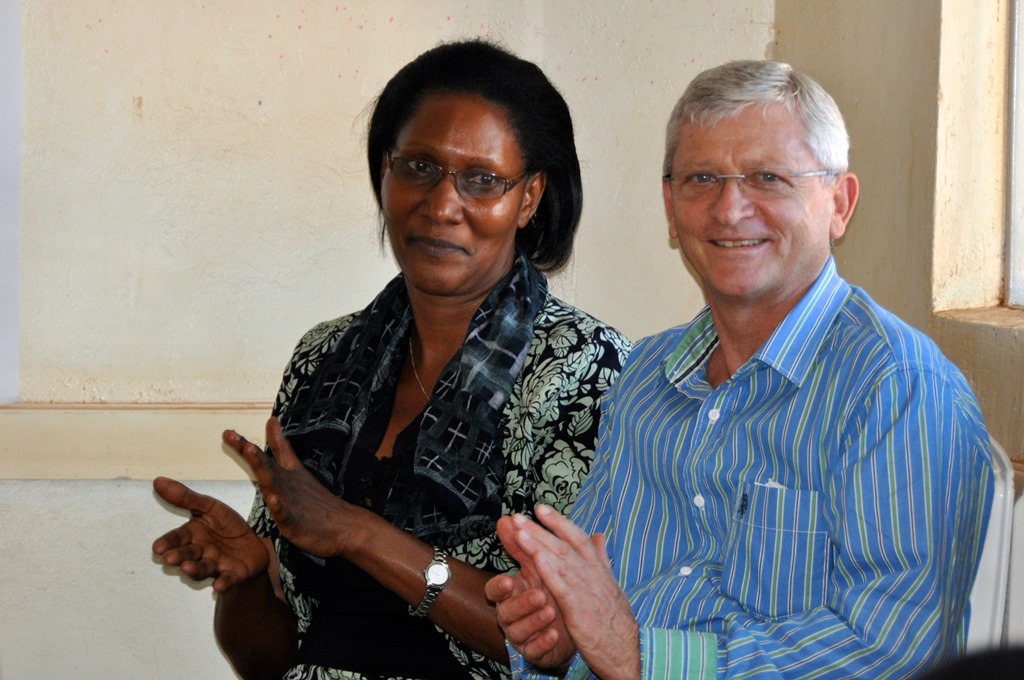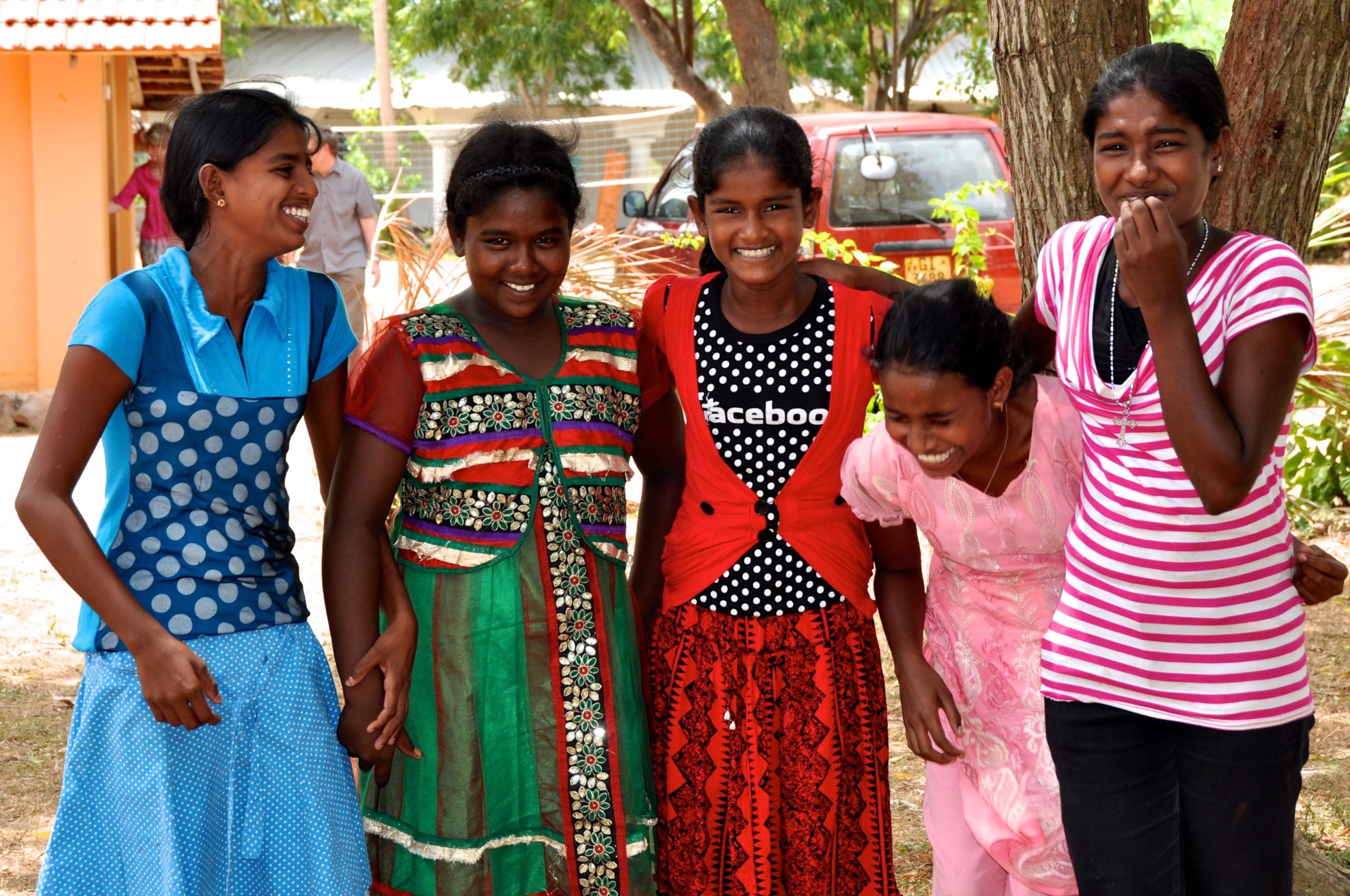Friends Overseas
Connect for Life
Connect for Life is a non-profit organisation located in Colombo, Sri Lanka, directed by Robert Silva. Robert holds degrees in counselling and theology. In 2013, Robert came across a campsite and the moment he saw the place, he knew it would be suitable for his work. The location, near Chilaw, was ideal for the implementation of his dream – reconciliation of broken lives, relationships and ethnic differences.
As he was growing up, Robert struggled to identify where he belonged in his society, given that he was part Sinhalese, part Tamil, and was influenced by both Buddhism (the predominate religion in Sri Lanka) and Anglicanism (his Tamil grandmother identified as Christian).
“People would call me names and I would get angry with God,” recalled Robert. “I asked him why He made me like this.” Despite this, Robert gradually came to recognise and embrace what he believed was God’s purpose for his life – to be a bridge between the two racial groups in his country. Thus, the Connect for Life camp took shape. Funds to purchase the campsite came from unlikely sources. On one of his visits to Australia, a couple were moved to donate a considerable sum of money for the purchase.
Since 2011, Barry and Paula have partnered with Robert and Connect for Life and have visited the campsite on several occasions. They believed that in a collective society like Sri Lanka, working with couples would be an effective healing strategy for better family relationships. Initially, they established workshops for traumatised couples, where the couples were given skills and strategies to help them to contain their emotional distress and function better on a day-to-day basis. The workshops became a safe place for many participants to tell their stories of war trauma. Very early we learned to listen and to learn culturally appropriate ways of processing trauma. Raphael and Wilson (2015, p.245) explain that “In the aftermath of traumatic events, the ability to share with others concerns, discomfort, and painful feelings can serve cathartic functions and also activate social supports needed to deal with stress.” Importantly, self-disclosure is described as a “social resource” that helps to alleviate trauma symptoms (p.245). The workshops give traumatised couples a voice, both in the marriage relationship and in their families. Susan Johnson (2004, p.3) aptly states that the “nurturant solace” offered by close relationships can protect the couple from physical and emotional illnesses and improve their resiliency (Taylor, 2002). This is demonstrated, both during the workshops and in follow-up visits.
Currently, Barry and Paula conduct marriage workshops and support local counsellors in professional development. The campsite is a great base for many of these workshops. Interestingly, a key strategy in the marriage workshops is couple dialogue between Barry and Paula that facilitates vulnerability in a safe, therapeutic environment. This appears to be a transformational element in the workshops.
The Vision
To be a confidential and esteemed counselling organisation, renowned for delivering quality services of healing reconciliation and restoration to people whose lives are broken, disillusioned and confused.

The Mission
To encourage and empower traumatised and disadvantaged individuals and families to discover hope and life’s purpose through counselling, training and education to become useful and successful persons in society.
Wakisa Ministries
Wakisa’s journey began in the 1970’s when Vivian Kityo was working as a young nurse at Nsambya Hospital in Uganda. She was touched by the death of a young girl under her care, who died of septicaemia as a result of an abortion.
Years later, upon meeting the girl’s mother, Vivian grew to understand the need for open communication between mothers and their daughters in order to prevent this kind of tragedy. The girl’s mother said that her daughter had feared the repercussions of speaking to her parents so much that she had kept the pregnancy a secret and had undergone the abortion that would take her life. Vivian was haunted by the dead young girl’s face for many years.
Later, Vivian joined a Christian organisation called Mothers Union, in the Church of Uganda, where she recognised a need to offer counselling services to young pregnant women to prevent tragedies such as those she had witnessed earlier. While acting as a leader for Mothers Union, Vivian clearly sensed the need to open a place where young mothers with unplanned pregnancies could go to receive the love and care they deserved. Thus, Wakisa was born in 2005 and is centrally located in the capital of Kampala.
Wakisa has since expanded to embrace those traumatised by war and civil strife throughout the Great Lakes Region. Research has conclusively proven that adequate, appropriate psychosocial intervention will reduce ill health and foster resilience in survivors. Therefore, from 2004 to 2010, Barry and Paula were participants in teams travelling to Uganda, conducting training courses for representatives from the various people-helping groups in Uganda, Sudan, Rwanda and the Democratic Republic of the Congo. The workshops were designed to resource local workers with education, skills and counselling to effectively manage trauma related issues.
In the aftermath of Uganda’s 20-year war fought primarily in the north, Barry and Paula believed that in this collective society, working with couples would be an effective healing strategy. They established workshops in Northern Uganda for severely war-traumatised couples. The couples were given skills and strategies to help them to contain their emotional distress and function better on a day-to-day basis.
In addition, many girls with unplanned or unwanted pregnancies are rejected and abandoned by their families and communities, becoming desperate, depressed and often considering abortions as a way out of their predicament. Those who choose to keep their babies are often left to provide for their newborns, without help from family or the male responsible for the pregnancy. The primary focus of Wakisa is the physical, emotional, social and spiritual health of pregnant girls, young mothers and their babies by providing them with support services and equipping them with life skills.
The Vision
A generation of young people, free from the trauma of early sexual behavior, or war, living with the hope of a brighter future.

The Mission
To provide love, care, shelter and counseling support to traumatised youth, mainly young girls with unplanned pregnancies and those traumatised by war.

JanPragati
JanPragati is an initiative by young people. This love movement has its origin when a group of young friends witnessed the horrors of poverty. In 2007, there were heavy monsoonal rains wherein, at a particular area of Lucknow, waters of massive proportion destroyed the dwelling of many poor people who lived along the banks of a sewage canal. While serving food to displaced families with children, these young people witnessed the crippling hands of poverty. They were also affected by wholesomely wanting to help make a change in people’s lives. The impact then grew stronger to a passion to serve the poor.
However, JanPragati is also the result of obedience. For me, Nitin, all began with a vision from God. In the month of May 2002, I saw a vision where I stood before a great blue gate. There stood on my right was a huge man in a white flowing dress. He asked me to open the gate and walk by. I did not hesitate. There was a corridor on which I was to walk with a cloud of smoke and a stench which was unbearable. I did not notice what was on my left. However, on my right, there were heaps of human carcasses lined along the passageway. It looked like those gruesome pictures of the Jewish holocaust. I remember closing on the human carcass, realising that they were not really dead, but they were atrophied human lives still crawling over other bodies, seeking an escape from that degenerate place. I was taken aback, aghast by what I saw. I screamed out in a loud voice asking someone to take me away from that place.
Where are we?
Lucknow, India
However, my dream did not end there. I saw myself again in front of the great blue gate. There was the man in white again. As before he asked me to open the gate and walk by. This time I told him that I would not do so. But he assured me that it would be okay. So, I opened the door and started walking along the same passageway. However, this time there was no stench; not even a clue of the previous ambience. However, on my left were youngsters sitting over desks and talking. When they saw me approaching I saw them standing in respect. I was baffled since I was only then as young as they were. I was hesitant to look to my right however, I could not help but take a peek. But things had changed now. There were no human bodies; instead, there were children! Children everywhere! They were playing all around, hopping and skipping all around. Two of them; I remember well, a boy and a girl pulled me into the crowd. I went along and joined them in their games. I do not know how long because I had a pretty good time with them. Then suddenly I remembered the carcasses. I turned to the man in white and enquired about it. He answered: “That was night and this is day.”
Back then, I didn’t really understand the meaning of the angel’s answer, and in fact, the whole dream itself did not make much sense to me then. As time passed by, I understood that God was asking me to change my night to day. There was a challenge placed before me, and it required perfect obedience. When God brought each opportunity before me, I stepped in, only to obey Him – mostly into the dark. But each of these dark places slowly transformed into daylight. When I first met people from the slums, I was appalled. I wasn’t ready to live for them. But now they have become the reason for my service to God. Now there was also a vibrant youth group, who looked up to me as their leader, simply because I chose to walk through the corridor. There is childlike life now at quite a few corners where once carcasses craved for the escape. I took you through a journey which was much an addendum of a personal note to the larger story. Let me now get back to our story, from where I diverted your attention.
However, though the nascent passion still gripped the serving spirit of these youngsters, a concrete idea or plan for selfless service did not materialize until early 2011. By then, these youngsters had already formed a small group named Last-Stitch. They were united through the teachings of Jesus. What inspired them was Jesus’ exhortation to transform the community with the Love of God. This was the birth of JanPragati. They did not have to wait long before opportunity knocked at their door.
Launched on the auspicious National Children’s Day (November 14) in 2011, JanPragati began a small school of 15 children, sitting under the shelter of a bare tree. The history of this movement traces back to a daunting search for a particular slum boy. In that particular search, we accidentally came across a group of families clumped together in a settlement in Gomti Nagar Extension, near the present-day Shaheed Path. There were children all around, and they clustered around us as if to ask us to help them. Not a single child was going to school. On inquiry, we saw the opportunity to make a difference. Initially it looked like a herculean task. But God provided a supporter to help us with the work. This is the beginning of Pragati Paathshala.
Those were the dark days of JanPragati, where our immature understanding made little progress. As much as it was a noble work, there was no direction. We were just taking a stroll through social work. It took around two years for us to understand the culture and social dynamics of the slum. Further research made clear a few things: these people were isolated even within the crowded busy city life. Therefore, any form of education would have to be informal and within the friendly ambience of the slum. Most families were dysfunctional, with abuse often being considered normal. Education for children would not have any effect until families, and consequently, the community as a whole were to be socially reformed. These experiential illuminations resulted in the creation of an indigenous and sui generis form of the education system, particularly catering to the needs of slum dwellers. The second result was the beginning of a new programme named Bhamini.
We began Bhamini as a program for mothers, but only as a means to help their children. Bhamini was an apt name because it means ‘beauty’ or ‘Glory’ in Sanskrit. If the mothers were helped, there was a better chance for children’s education bearing fruit. However, we soon realized that the mothers’ lives were often broken by the subjugation and abuse that existed in the slum. Reckoning the enormousness of women’s issues within the slums, our hearts were moved to help women; not simply for the children, but for the women themselves. Our women needed to be empowered in their self-esteem and equality with men. We do not teach our women to be perfect; we teach them to be brave.
Meanwhile, there was another movement that began budding in our lives. This is the movement that sought to save unborn lives and expectant mothers who are in distress. We began Mekhi’s home in 2016, which provides refuge to women in crisis pregnancy. Ever since it started, many women have sought shelter there. We work closely with the CHILD WELFARE COMMITTEE of Lucknow. Most of our women are either cases of rapes or abductions. But providing hope to these women has been a joy for us. Under Bhamini, we also conduct natal programmes which provide means of sustenance for poor women. Infant mortality rate is highly proportional to the health of the expectant mothers and new mothers. So, it was imperative that if we could nourish these women with essential nutrients, we could reduce the possibility of infant deaths. So an expectant mother was cared for and nourished through her pregnancy, monitoring and assisting her in until delivery. The programme continued until the infant is one year old.
As part of the Speak Life initiative, we began speaking about the foeticide in India and other issues like pornography and sexual abuse. We have been reaching out to colleges and other institutions who allow us a platform to speak about such issues.
While we might be interested in beginning any new projects, the one desire that remains with us, is to expand our existing ones to other cities of India. We have gone through struggles and victories. Our experiences, accompanied by academic research, have enriched our programmes. We would not want to keep it constrained to Lucknow alone. There are far many paths yet to tread, there are many oceans left to sail.
